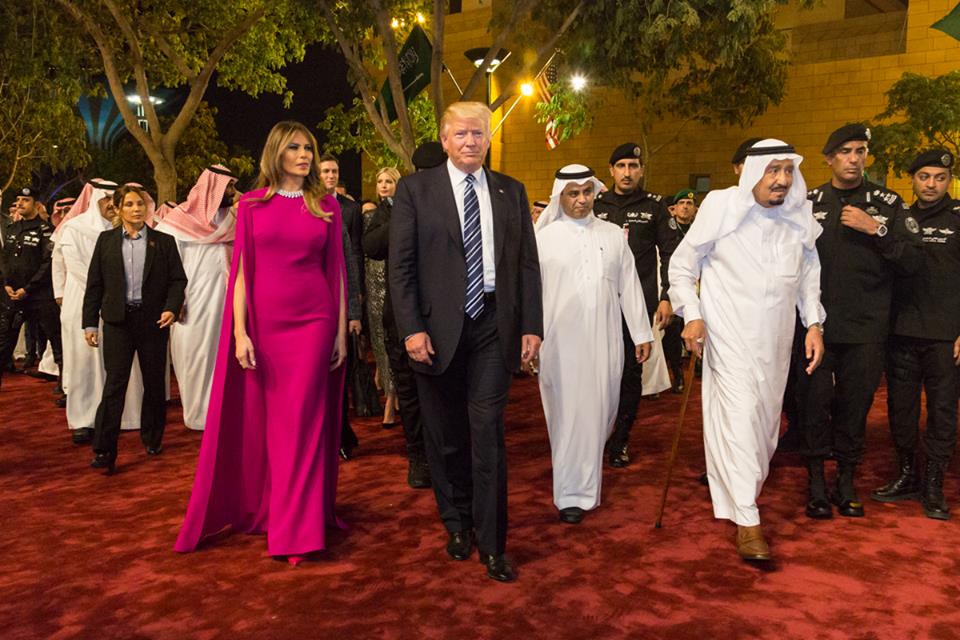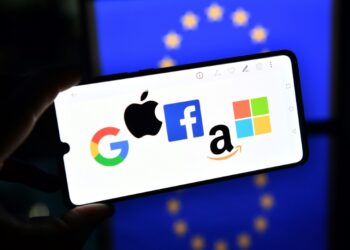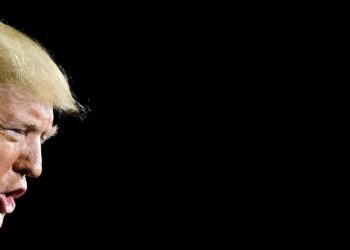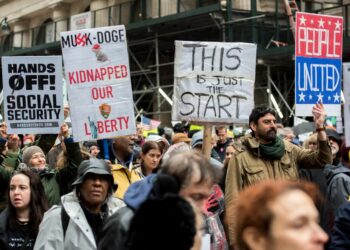“From this moment on, it’s going to be America First,” President Donald J. Trump said in his inauguration speech.
Mr. Trump had campaigned on breaking foreign policy traditions and decades-long norms. During his campaign trail, he slammed China as a currency manipulator, suggested reducing America’s commitment abroad and berated allies including NATO countries.
His first trip abroad as president was no different.
As soon as Mr. Trump arrived in Washington on Sunday, Germany’s Angela Merkel delivered a stunning rebuke of retreating American leadership, saying that it is now up to Europeans to take their destiny into their own hands since Europe cannot rely on Mr. Trump’s America and Theresa May’s UK.
In Brussels, Mr. Trump continued his favorite line and demanded that NATO members pay their dues. Instead of displaying U.S. solidarity with NATO’s European allies at a time of escalating Russian confrontation in the continent, the U.S. president’s speech signaled Washington’s reluctance to keep NATO intact. Since undermining NATO has been a longstanding Kremlin policy, European allies were alarmed that they could no longer bet on their most powerful ally.
During his trip to Israel, he did not once mention the word Palestine, a veiled message that Washington is no longer interested in a two-state solution.
A president who campaigned on a promise to “drain the swamp” in Washington, Mr. Trump’s penchant for breaking rules, including established international diplomatic protocols, is not surprising.
After his electoral victory, for example, Mr. Trump had broken the diplomatic conventions by a phone call with Taiwan’s leader, Tsai Ing-wen, infuriating Beijing. It was the first call between a U.S. president or president-elect and Taiwan’s leader since 1979.
The U.S. has adhered to the “One China” principle, a key cornerstone in U.S.-China relations that considers Taiwan as part of China with independent governance. Mr. Trump responded to critics with a tweet: “Interesting how the U.S. sells Taiwan billions of dollars of military equipment, but I should not accept a congratulatory call.”
The timing of Mr. Trump’s first international trip also came after his 100 days at the White House, a departure from previous presidents in modern decades.
The first country Mr. Trump picked was not a U.S. neighbor but the Middle East. An unabashed critic of Islam, Mr. Trump first foreign stop, ironically, was Saudi Arabia, a country that houses Islam’s two holiest sites. His visit to Riyadh was widely billed as an attempt to overturn former President Barack Obama’s policies in the Middle East, particularly regarding Iran.
During the two-day visit, Mr. Trump signed a series of agreements with Saudi King Salman, including an arms sales deal of about $110 billion in total over ten years. The deal will energize U.S. arms makers as well as check Iran’s expanding foothold in the Gulf region.
In the speech he gave in Saudi Arabia capital Riyadh, the president criticized Iran on its influence in the Middle East.
Iran’s re-elected President Hassan Rouhani described Mr. Trump’s recent meeting with King Salman as “just a show.”
He said in a news conference in Tehran: “Mr. Trump arrived in the region at the time when he saw 45 million Iranians participating in the elections. Then he visited a country that I doubt knows the definition of elections. The poor things have never seen a ballot box.”
But several political analysts say the Trump administration is shifting rhetoric on key foreign policies.
Anja Manuel, a former special assistant to undersecretary for political affairs Nicholas Burns, told Politico that “[Trump]’s moving toward a more traditional foreign policy, and that’s a very encouraging thing.”
For instance, Trump is taking a more moderate stance on NATO after meeting with its Secretary General Jens Stoltenberg and commented “I said it was obsolete. It’s no longer obsolete.”
Despite his tough talk against China during the campaign, Mr. Trump met with Chinese President Xi Jinping last month to discuss resolutions to resolve threats from North Korea. Mr. Trump also said that he had “great chemistry” with Xi.
As Manuel suggested, “when you look at Trump’s foreign policy, you should look at what it does rather than what the president tweets.”
For allies and foes, it is still not clear if Mr. Trump’s foreign policy rhetoric is for domestic political consumption or a real shift in U.S. foreign policy priorities.
********
This article was possible thanks to your donations. Please keep supporting us here.






















